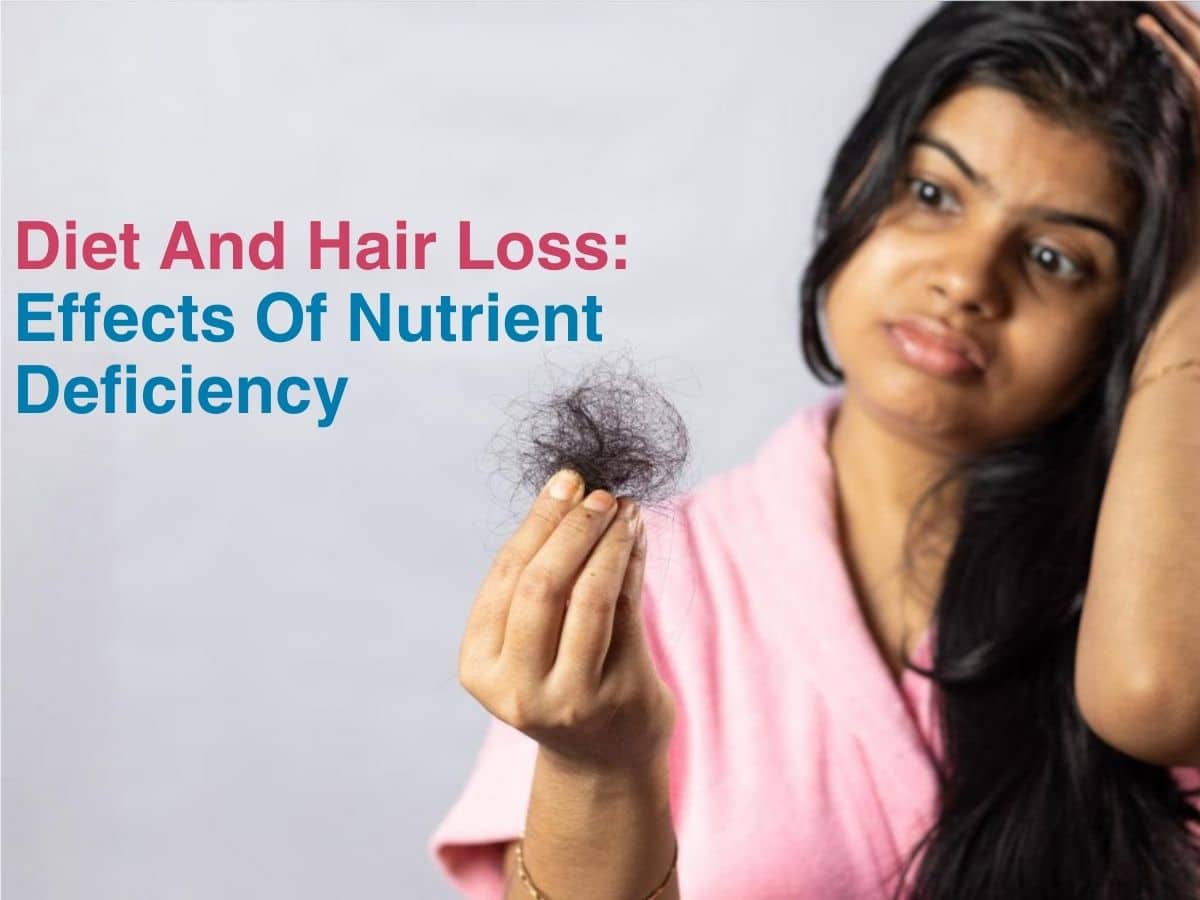
Diet and hair loss: effects of nutrient deficiency

Wondering why you can’t get away with your favourite elaborate hairdos from years ago? Hair starting to feel lifeless, just like your diminishing hopes of a nice promotion or vacation? Don’t worry. You will be fine but we are NOT going to give you quick fixes. You will need to commit to it for a long time for the best results. What are we asking you to do? Nothing crazy-just follow a good diet and hydration plan everyday!
How To Improve Hair Growth With Proper Nutrition
Good hair growth is dependent on a few simple but important factors-genes, diet, hydration and general external care. The first two are super important-diet and genes. We can’t do anything about our genes now, but diet-we sure can make sensible tweaks and achieve better results. As mentioned, proper nutrition will help your tresses stay healthy, not break off, reduce hair fall, improve hair texture and also leave you feeling confident and glowy. Now what’s not to like about this whole deal? Your diet needs to contain fresh produce which are rich in vitamins and minerals while good amounts of protein can help increase growth and promote better hair strength.
How Does Iron Deficiency Cause Hair Loss?
So, most of us know that hair growth happens in phases, and not throughout. When you consistently include iron and folate in your diet, it can help reduce the number of hair follicles going into the resting or telogen phase- meaning reduced hair fall for you and more lush looking hair. Iron deficiency also means that your body will prioritise where the low iron reserves need to be, and that is NOT your hair. Food sources include-greens, tomatoes, broccoli, dates, dried fruits, all pulses or legumes, tofu and whole grains respectively.
Best Vitamins To Prevent Hair Thinning And Loss
Vitamins like A, B, C and D are all important for hair growth. Vitamin C when consumed with iron can help with better iron absorption. Vitamin B can be obtained from dairy, eggs, meat, greens, organ meats and certain fruits. Vitamin A is good for all around cell growth and hence new hair that comes in will be better than before and can be gotten from any coloured vegetable or fruit-yellow, orange or red, along with dairy and dried fruits too.
Does Protein Deficiency Lead To Hair Loss?
We hope you know that hair is made of blocks of a protein called keratin. So, if you consume a diet deficient in protein, it can affect your tresses negatively-by forcing more hair follicles into the resting phase of growth and increasing hair fall later on. Hair will also look dull, lifeless and fall in a limp manner with no bounce. So, eat your dals, meat, tofu and paneer religiously.
Conclusion
A well balanced diet can not only help you stay healthy and fight off diseases, it can also help you look and feel more confident than ever. While bad hair days are a part of life, it shouldn’t be a daily occurrence. You can help matters by eating good food and drinking plenty of water-this way your skin and hair look lush and glowy. Remember-you are what you eat, including your tresses!
Frequently Asked Questions
How does iron deficiency lead to hair thinning and loss?
Depleting iron reserves means the body will NOT think that hair growth is a necessity for survival and direct iron away to other parts of the body via the blood. This can make hair brittle and cause more hair loss.
What vitamins are essential for maintaining healthy hair?
Remember your ABCDs-all 4 of these vitamins are essential.
How does vitamin D deficiency affect hair health?
All vitamins are needed for proper hair follicle growth regulation-and help them cycle between the 4 different growth phases in a proper manner. Vitamin D deficiency can reduce the anagen or growth phase and increase the resting telogen phase-causing more hair fall.
How do zinc and magnesium impact hair growth?
Vitamins like zinc, iron and magnesium are needed for your cellular machinery to function at peak levels. Too less or too much can be an issue.
Can improving your diet reverse hair thinning or loss?
Yes, definitely, but remember that there is no single magical item that can help you get better soon. You will need to take time out and plan meals well and take proper care of your hair-by oiling it, using shampoo and conditioner and serums as needed.

Dr. Akansh Jain
MBBS, MD (Dermatology/DVL)
Consultant Dermatologist & Cosmetologist






